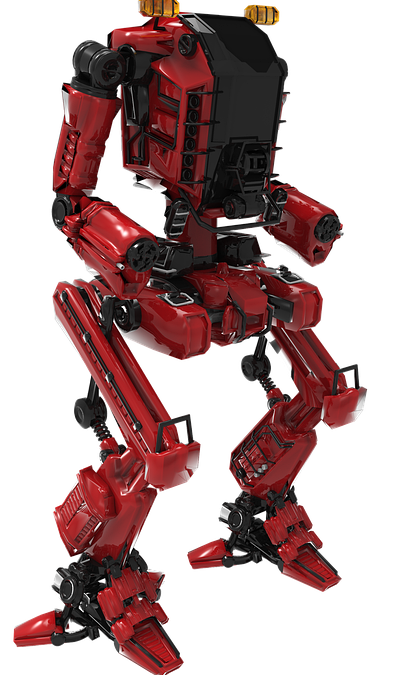Unveiling the Secrets of Universal Rebirth: A Journey into Cosmic Renewal
Introduction
Throughout history, humans have been fascinated by the cycle of life and death. The concept of rebirth or renewal has been central to various belief systems and philosophical traditions. In this article, we embark on a journey to explore the secrets of universal rebirth and delve into the realm of cosmic renewal.
Understanding Universal Rebirth
Universal rebirth refers to the idea that the universe, as a whole, undergoes a cycle of death and renewal. This concept can be found in ancient mythologies and spiritual teachings from different cultures around the world. It suggests that everything in the cosmos, from stars and galaxies to living beings and energy, is part of this eternal cycle.
Many ancient civilizations, such as the Egyptians, Greeks, and Hindus, developed intricate cosmologies that incorporated the notion of universal rebirth. They believed in the existence of a cosmic order, where creation and destruction were intertwined, leading to a perpetual cycle of renewal.
The Role of Death in Universal Rebirth
Death is not viewed as an endpoint but rather as a transformative phase in universal rebirth. Just as seasons change, life forms evolve, and stars explode, death opens the door to new possibilities and fresh beginnings. It is through the process of death that the old makes way for the new.
From a philosophical standpoint, death can be seen as a necessary part of existence. Without death, there can be no rebirth or renewal. It is the continual cycle of life, death, and rebirth that allows for growth, evolution, and transformation.
The Cosmic Renewal Process
While the concept of universal rebirth may seem abstract, it can be observed on various scales within the universe. From the birth and death of stars to the cycles of ecosystems on Earth, cosmic renewal is ever-present.
Stars, for example, are born from clouds of gas and dust, and eventually, they exhaust their nuclear fuel and die. However, their death often leads to spectacular events such as supernovae, which distribute heavy elements into space. These elements then become the building blocks for new stars and planetary systems.
On a planetary scale, we witness the cycles of life and death in ecosystems. Plants die, decompose, and nourish the soil, providing nutrients for new life forms to emerge. This constant renewal allows for the sustenance and growth of diverse organisms, creating a delicate balance within the ecosystem.
Exploring the Mysteries
As we delve deeper into the secrets of universal rebirth, we encounter mysteries that challenge our understanding of the cosmos. These mysteries include:
1. The Origin of the Universe
The ultimate question of how the universe came into being remains unanswered. Scientists and cosmologists have proposed various theories, such as the Big Bang theory, which suggests that the universe originated from a singularity. However, the exact mechanisms and underlying causes of the universe’s birth are still subjects of intense research and speculation.
2. Consciousness and Rebirth
Some spiritual traditions, particularly those rooted in Eastern philosophies, believe in the concept of reincarnation – the rebirth of an individual’s consciousness into a new body after death. The relationship between consciousness and the physical world remains a profound mystery, and understanding how consciousness could potentially transcend death is a subject of ongoing exploration.
3. The Fate of the Universe
Scientists have determined that the universe is in a state of expansion, but the ultimate fate of the cosmos is still uncertain. Will it continue expanding indefinitely, leading to a “heat death,” or will it eventually contract and undergo another cycle of rebirth? Unraveling the destiny of the universe is one of the most captivating and perplexing questions in cosmology.
FAQs
Q: Is universal rebirth a scientific concept?
A: While the concept of universal rebirth is deeply rooted in various mythologies and spiritual traditions, it is not widely accepted as a scientific theory. However, elements of cosmic renewal can be observed in natural phenomena and the life cycles of celestial bodies.
Q: Are there any scientific theories supporting the idea of universal rebirth?
A: Currently, there are no widely accepted scientific theories specifically focused on universal rebirth. However, concepts such as stellar evolution, ecosystem dynamics, and the cycles of matter and energy in the universe align with the broader idea of cosmic renewal.
Q: How does the concept of universal rebirth impact our understanding of life and death?
A: The concept of universal rebirth offers an alternative perspective on life and death. It suggests that death is not the end but rather a gateway to new beginnings. It encourages us to embrace change, accept the impermanence of existence, and appreciate the interconnectedness of all things.
Q: Can universal rebirth be experienced on a personal level?
A: The idea of personal rebirth or renewal is often associated with spiritual or psychological transformations. Many individuals undergo personal journeys of growth and self-discovery that can be seen as a form of rebirth. However, the direct experience of universal rebirth remains a matter of personal interpretation and belief.
Conclusion
Unveiling the secrets of universal rebirth takes us on a fascinating journey into the mysteries of the cosmos. From understanding the role of death in renewal to exploring the cosmic processes of birth and transformation, we gain a deeper appreciation for the cycles that shape our universe.
While the concept of universal rebirth may not have a unified scientific explanation, it continues to inspire philosophical and spiritual discussions about the nature of existence. By embracing the impermanence of life and recognizing the interconnectedness of all things, we open ourselves to a profound understanding of cosmic renewal and our place within it.

